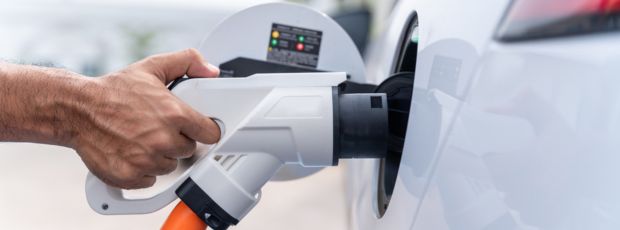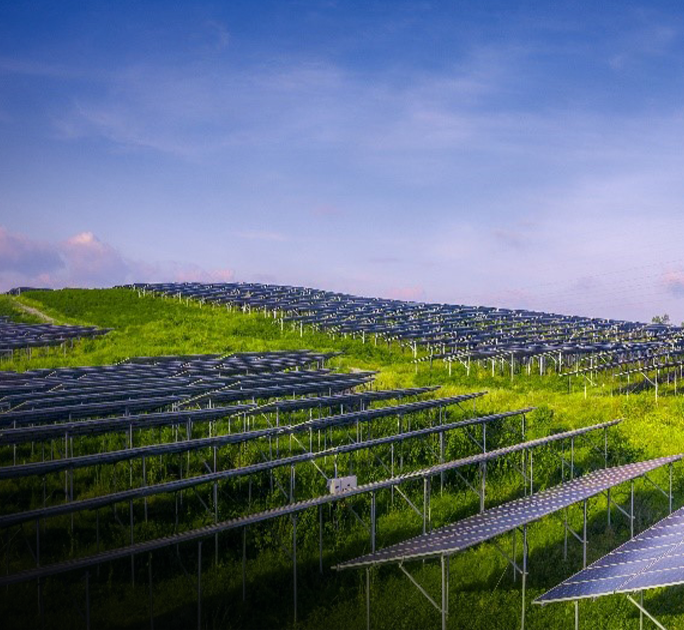Chinese electric automaker industry shaping up for rise in competition
A price war is erupting in China’s Electric Vehicle (EV) market, as foreign and domestic automakers battle it out for dominance.

In January 2023, Tesla sparked a price war in China’s EV market after slashing prices on its Model 3 and Model Y.1 The move forced local manufacturers to also lower prices2 on their vehicles and change strategies, as they compete for a greater share of the world’s largest EV market.3
After a record-breaking 2022 that saw almost six million electric cars4 registered in China, the country’s EV market is off to a rocky start in 2023. January saw sales dip by 5%, a slowdown we anticipated as government subsidies ended in 2022. But what will the combined effects of pricing pressures and slowing sales mean for the country’s EV market in the long term?
The shaky start is expected to be a temporary blip as China firmly pushes ahead with its goal to decarbonise, with an ambitious plan to reach net-zero by 2060.5 Critical to this success is the transport sector, and vehicle electrification is a key focus. With the country aiming for EVs to make up 40% of all car sales by 20306, we foresee that Neighbourhood Electric Vehicles (NEV) sales will remain strong at an estimated 24% per year.
While the price war may be currently rattling the market, two things should make up for the impacts of rising competition and slowing sales growth: easing commodity prices and an improved supply chain.
Interest rate hikes and slowing global demand have cooled commodity prices in the auto market. The costs of steel, aluminium and lithium have fallen between 20% and 40%. Colbalt, a key material in EV batteries, has even plummeted by 60%.7 The lowered costs can help offset the profit margin erosion from fierce price competition.
The supply chain issues that plagued the world for the last two years is also abating, as freight congestion clears up and shipping costs fall. As of March 2023, container freight rates have fallen about 80% year on year8, according to the World Container Index. The supply of automotive chips is also improving9, and we are expecting a fall in their prices for 2023. Likewise, these drops in prices will help automakers alleviate production costs.
External forces aside, Chinese automakers are trying to outmaneuver their international rivals by entering the high-end vehicle market where competition is less intense. Take BYD – the world’s largest NEV maker – for instance. In January 2023, it unveiled two luxury brand models in a move that is expected to command better product margins and drive growth. To protect their market share, other players like Geely, Great Wall Motor and Guangzhou Auto are also rolling out over 20 new models this year. In fact, 2023 is expected to see a record number of new EV launches.
Such moves are opening up opportunities in this space. As the Chinese government continues to support the growth of NEVs, the sector is expected to remain strong moving forward.
With the country progressively reopening, this will also accelerate economic growth and further support the consumer market for EVs.
- https://www.reuters.com/technology/tesla-cuts-prices-model-3-model-y-china-2023-01-06/
- https://www.arenaev.com/byd_cuts_prices_for_the_first_time
_this _year_and_shortens_delivery_times-news-1473.php - https://www.scmp.com/business/china-business/article/3205675/who-powers-worlds-evs-china-has-6-top-10-ev-battery-makers-60-cent-market-share-led-catl-and-warren
- https://www.wsj.com/articles/chinas-ev-sales-broke-record-in-2022-as-overall-auto-market-stalled-11673353084
- https://www.iea.org/reports/an-energy-sector-roadmap-to-carbon-neutrality-in-china
- https://news.mit.edu/2021/chinas-transition-electric-vehicles-0429
- https://www.ft.com/content/abf28c9f-54e2-45c2-8dac-c5016bd31423
- https://www.freightender.com/world-container-index-wci/
- https://techwireasia.com/2022/10/the-chip-glut-is-here-and-semiconductor-players-are-bracing-themselves/



